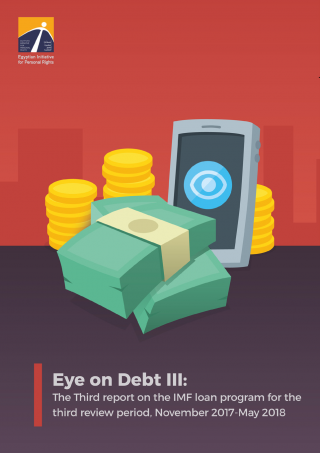Tags: Education
Egypt has missed that opportunity, so far, according to the paper published by EIPR, on October the 17th, titled: "Four flaws: Assessing the Egyptian-IMF energy subsidies reform". The publication coincides with the International Day for the Eradication of Poverty. The paper depends on the principle: "clean energy guaranteed to all at reasonable prices", which is the seventh goal of the sustainable development goals that the Egyptian state adopted and is supposed to achieve (Egypt 2030).
The report assesses the economic and social impact of the economic adjustment program, agreed upon by the Egyptian government and the International Monetary Fund as a condition for Egypt’s receipt of $12-billion loan under the Extended Fund Facility, to be disbursed in six tranches.
The EIPR reiterates its reservations on most of the IMF loan terms, which have adverse socioeconomic impacts on most citizens and are damaging to the economy and social stability.
The political administration reduced the budget deficit to under 10% using controversial economic measures without taking the necessary measures to protect the poor from the inevitable resulting inflation and increase in prices.
(19 February 2010, Geneva) The UN review of Egypt's rights record has been overshadowed by the Egyptian government’s use of its diplomatic relations to limit a constructive debate, preventing real concerns from being raised while denying all human




